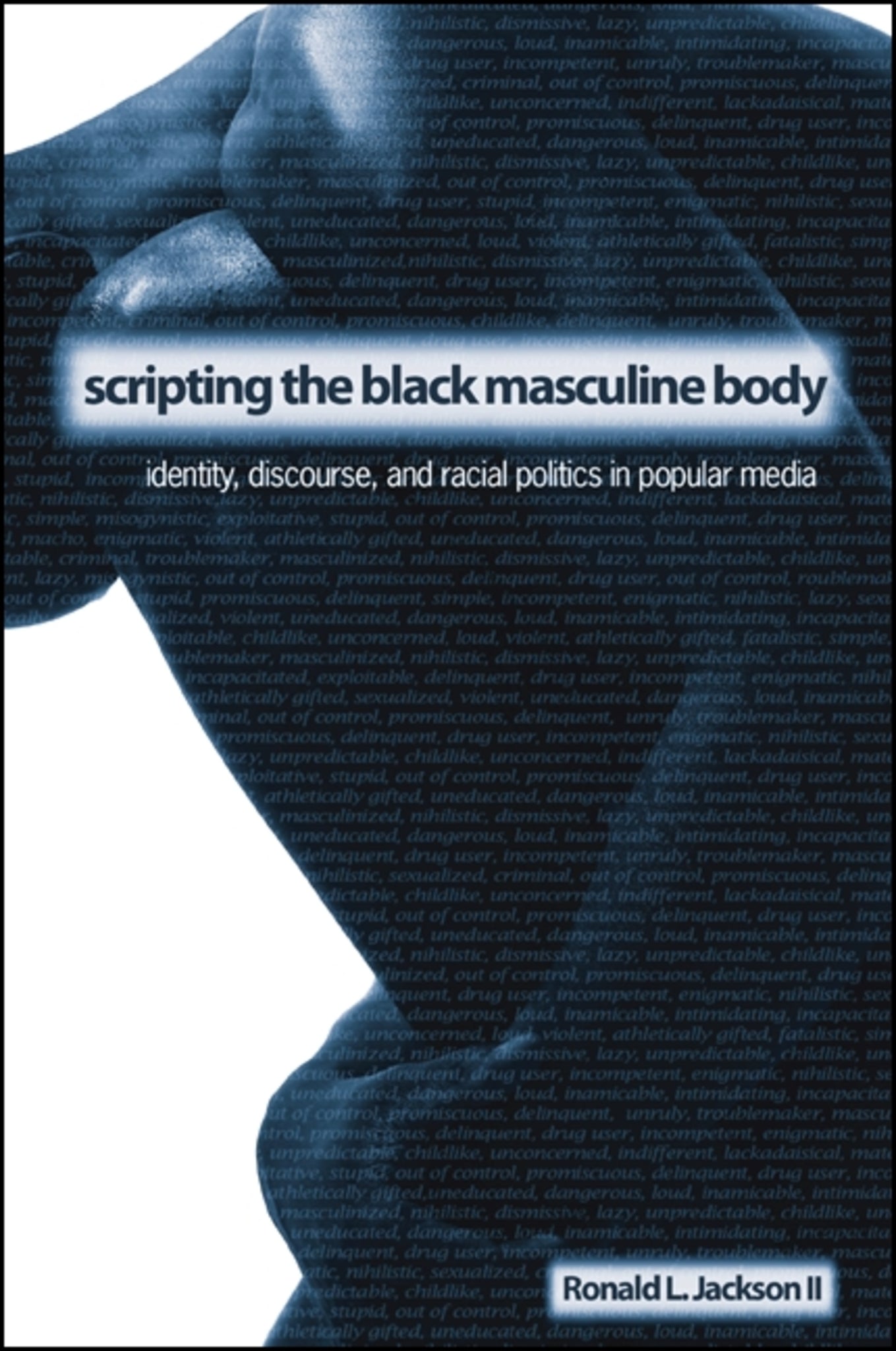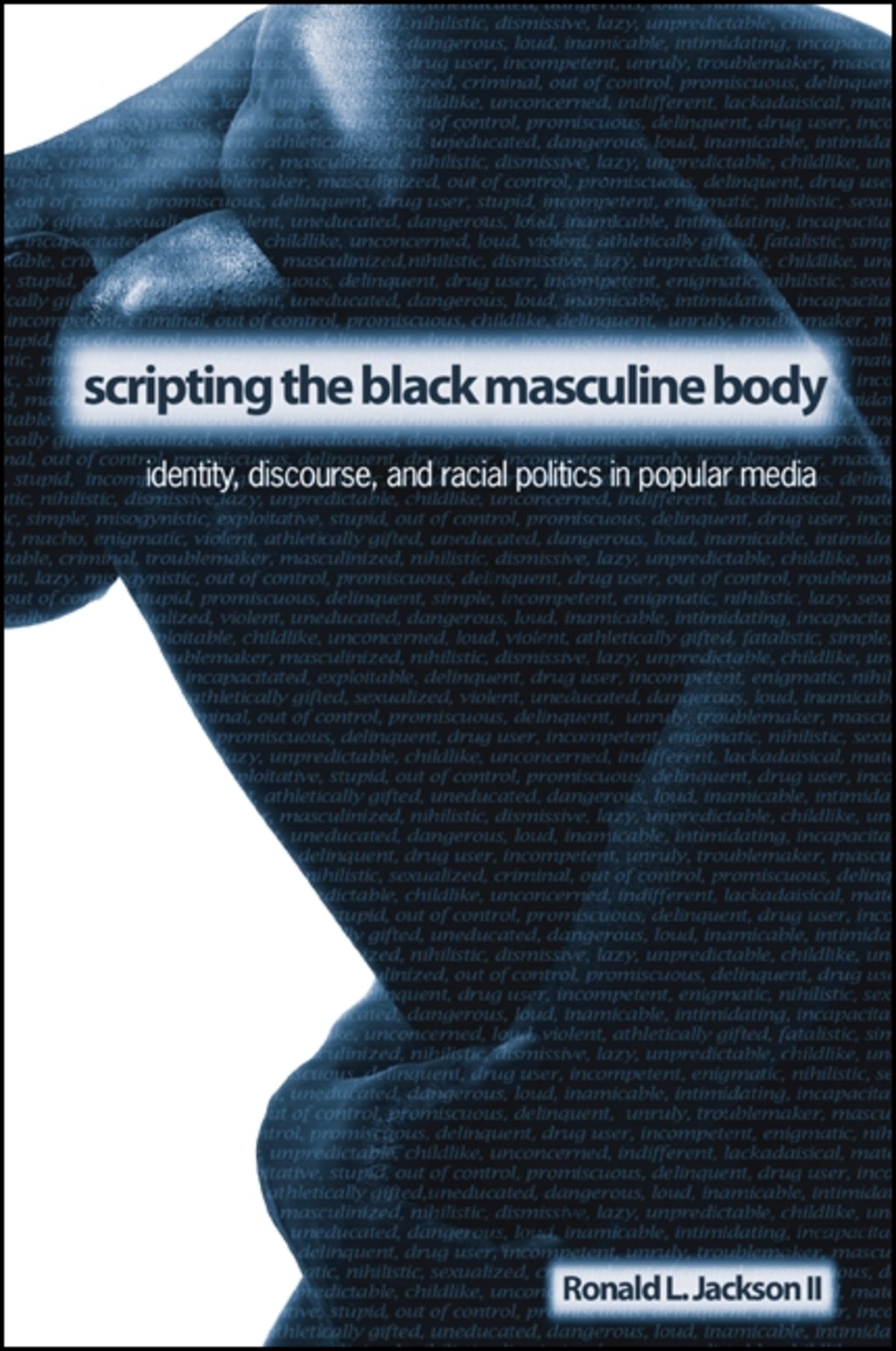We're sorry. An error has occurred
Please cancel or retry.
Scripting the Black Masculine Body

Some error occured while loading the Quick View. Please close the Quick View and try reloading the page.
Couldn't load pickup availability
- Format:
-
01 January 2006

Traces the origins of Black body politics in the United States and its contemporary manifestations in hip-hop music and film.
Winner of the 2007 Everett Lee Hunt Award presented by the Eastern Communication Association
Scripting the Black Masculine Body traces the origins of Black body politics in the United States and its contemporary manifestations in popular cultural productions. From early blackface cinema through contemporary portrayals of the Black body in hip-hop music and film, Ronald L. Jackson II examines how African American identities have been socially constructed, constituted, and publicly understood, and argues that popular music artists and film producers often are complicit with Black body stereotypes. Jackson offers a communicative perspective on body politics through a blend of social scientific and humanities approaches and offers possibilities for the liberation of the Black body from its current ineffectual and paralyzing representations.


"This topic is central to the field of communication, and Jackson is advancing a significant amount of innovation into the discussion of the Black body. He integrates historical and contemporary illustrations into his argument, grasps existing scholarship, and does so with an engaging writing style." — Mark P. Orbe, author of Constructing Co-Cultural Theory: An Explication of Culture, Power, and Communication
"Jackson raises concerns that are at the heart of communication scholarship, and his questions are central to the study of popular culture, the reproduction of racism, and the cultivation of complex identities." — Oscar H. Gandy Jr., author of Communication and Race: A Structural Perspective
Acknowledgments
Introduction
Race and Corporeal Politics
1. Origins of Black Body Politics
2. Scripting the Black Body in Popular Media: Exploring Process
3. Black Masculine Scripts
4. "If It Feels This Good Gettin’ Used": Exploring the Hypertext of Sexuality in Hip-Hop Music and Pimp Movies
5. Toward an Integrated Theory of Black Masculinity
Epilogue
The Revolution Will Not Be Televised
Notes
References
Index



